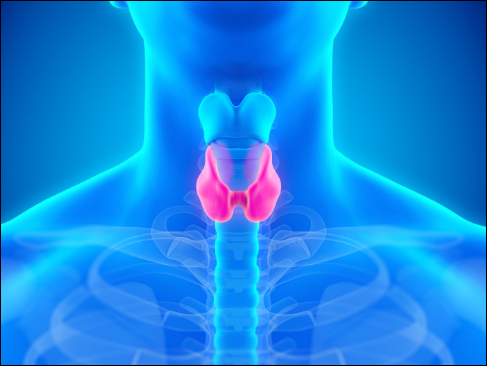×
The Standard e-Paper
Home To Bold Columnists

The thyroid gland is small a butterfly-shaped organ located in the neck; it is so small that it weighs about 28 grams. This organ is a vital hormone gland which plays a major role in metabolism, growth, and development of the human body. The thyroid takes iodine from food and converts it into thyroid hormones - thyroxine (T4), triiodothyronine (T3), and calcitonin. These hormones are then released into the rest of the body to regulate metabolism.